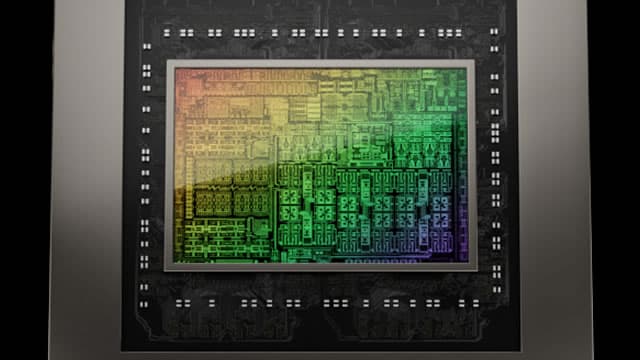Nvidia shares gain after US clears path for H20 chip exports to China

Summary
Nvidia shares surged after the US government cleared the path for H20 GPU exports to China, removing a significant regulatory hurdle. This strategic compromise allows Nvidia to resume shipments of its modified AI chips, crucial for its data center revenue in China. The news boosts investor confidence, potentially leading to higher revenue forecasts and setting a precedent for other tech companies navigating US-China trade relations. This development reinforces Nvidia's market position and resilience.
Nvidia Shares Soar as US Clears Path for H20 Chip Exports to China
Santa Clara, CA – July 15, 2025 – Nvidia Corp (NASDAQ:NVDA, ETR:NVD) shares experienced a significant uplift today following the company's announcement that it anticipates resuming shipments of its highly sought-after H20 graphics processing units (GPUs) to China in the near future. This development marks a crucial turning point after sales were previously halted due to stringent US export restrictions aimed at curbing China's access to advanced semiconductor technology.
In a statement released on Tuesday, Nvidia confirmed that it has successfully filed the necessary applications with the US government and has received assurances that the exports would be approved. This breakthrough is a testament to ongoing dialogues between the tech giant and US authorities, seeking a balance between national security concerns and the economic interests of American companies operating in global markets.
The H20 Chip: A Strategic Compromise
The H20 chip is a modified version of Nvidia's advanced data center GPUs, specifically designed to comply with US export controls while still offering substantial performance for AI and high-performance computing (HPC) applications. Its development and subsequent approval for export to China highlight a strategic compromise, allowing Nvidia to maintain its significant market share in China, a critical region for AI development, without directly violating US national security objectives. The H20 is tailored to fall below the performance thresholds that trigger export bans, yet it remains a powerful tool for Chinese tech firms and research institutions.
Market Implications and Investor Confidence
The news has been met with considerable enthusiasm from investors, driving Nvidia's stock higher. China represents a substantial portion of Nvidia's data center revenue, and the uncertainty surrounding export restrictions had previously weighed on the company's outlook. The clarity provided by this approval removes a significant overhang, bolstering investor confidence in Nvidia's ability to navigate complex geopolitical landscapes and sustain its growth trajectory.
Analysts widely view this as a positive catalyst, potentially leading to upward revisions in revenue forecasts for the coming quarters. The resumption of H20 shipments is expected to contribute meaningfully to Nvidia's data center segment, which has been a primary driver of its recent financial success. This move also signals a potential softening in the US stance on certain technology exports, offering a glimmer of hope for other American tech companies facing similar restrictions.
Broader Semiconductor Landscape
This development also has broader implications for the global semiconductor industry. It underscores the delicate balance between technological leadership, economic competition, and national security. Other chipmakers and technology companies closely watching the US-China trade dynamics will likely interpret this as a precedent, potentially influencing their own strategies for engaging with the Chinese market. The ability to supply advanced, albeit modified, chips to China could become a template for future trade relations in the high-tech sector.
Investment Insights for NVDA Shareholders
For current Nvidia shareholders, this news reinforces the company's strong market position and its resilience in adapting to regulatory challenges. The removal of the China export uncertainty is a clear positive. Investors should monitor the actual volume and pace of H20 shipments to China, as well as any further regulatory updates. While the immediate impact is positive, the long-term geopolitical landscape remains dynamic.
Potential investors might view this as an opportune moment, as the stock could see continued momentum. However, it's crucial to consider Nvidia's valuation and the broader market conditions. The company's innovation in AI and its diversified product portfolio continue to be strong fundamentals. This regulatory clarity simply adds another layer of stability to its revenue streams.
In conclusion, the US government's clearance for Nvidia's H20 chip exports to China is a significant win for the company, its shareholders, and potentially the broader semiconductor market, signaling a pragmatic approach to technology trade amidst ongoing geopolitical complexities.